June 16, 2021
Compliance: at the moment

► Compliance Law is essential for the future of Africa: this is also a lesson from the Juin 2021 G7 Summit in its Infrastructure Plan.
It emerges from the G7 summit which ends on June 13, 2021 in Carbis Bay in the United Kingdom, a common desire to increase infrastructures in Africa, in itself and because otherwise China will do it, and will do it differently.
Compliance Law will be determinant in this common action for three reasons.
First and because the issue is about infrastructures, the construction and the management of infrastructures falling more under Regulatory Law than Competition Law (📕Chevalier, J.-M., Frison-Roche, M.-A, Keppler, J.EPPLER, J.H. et Noumba, P. (ed.), Économie et droit de la régulation des infrastructures. Perspectives des pays en voie de développement, 2009). However, Compliance Law is not a simple process for the effectiveness of rules which are external to it, it is the extension in companies of Regulatory Law. Where companies must implement regulatory goals within themselves, they develop Compliance rules (➡️📝see Frison-Roche, M.A., From Regulation Law to Compliance Law, 2017.
Secondly and because the issue is about Africa, the Rule of Law is sometimes not very solid there. By internalizing Regulatory Law in companies (or even by associating Arbitration with it), Compliance Law makes it possible to get out of this dead end (➡️📝Salah, MM, Conception and Application of Compliance in Africa, in 📕 Frison-Roche, M.-A. (ed.), Compliance Tools, 2021.
Thirdly and because the topic si about China, Compliance Law in its European conception has the Monumental Goal of defending individuals while in its Chinese conception it aims to obtain their obedience to the rules (➡️📝Frison-Roche, M.-A., In China, Compliance Law deploys without, and even against democracy, China seeing Compliance only as an "efficiency process"; in Europe, it deploys with and even for democracy, 2021). On construction sites and in the human management of infrastructures, this changes everything.
G7 members share the first conception.
They must now implement it by their companies and thanks to them, private sector being in alliance with the political authorities which just expressed. Because Compliance Law is an alliance between political authorities and crucial economic operators.
June 15, 2021
Compliance: at the moment

► Money Laundering, Cryptocurrency and the Art of Saying It: the Financial Conduct Authority (FCA) statement of June 3, 2021 and the Art of Saying It. Law is softer than ever.
The English have their way of saying things: thus the Financial Conduct Authority -FCA, the British financial market regulator, published on June 3, 2021 a press release whose expression is remarkable. Its subject matter is crypto-assets and, like in an essay plan à la française, it is built in two parts.
In the part I, it is just mentioned that the deadline for companies in this industry to obtain a registration, which was due to end soon, will be postponed to March 2022. Why? Because almost all of them have not been able to demonstrate their ability not to be resistant to money laundering and other criminal activities. This is in no way presented as a conviction, just the objective cause of a postponement of the date, the time for the Financial Regulatory Authority to better examine the files, themselves to be completed by applicants.
The part II concerns consumer protection. The Authority point out that the consumer can lose everything in an extremely risky products and underlines that it is unlikely that this ruined layman will even be able to access the ombudsman to obtain anything. It is purely informative.
This is how the English bodies formulate their opinion on cryptoasset.
It's elegant (the press is more direct).
This also makes it possible not to be covered with insults by the worshipers of these objects: are expressed just a technical delay granted and not a conviction that cryptoasset could be per se an instrument of criminality, just a probationary difficulty ; and just a regret on the non-access to the ombudsman for these cryptoassets consumers.
But if the evolution of the bubble leads these investors to ruine shows, the Regulator will have warned and expressed in advance the regrets he had of the lack of legal technique to protect them. And if the facts show that it is massively through cryptocurrency that the crime is whitewashed, the Regulator has shown everyone his prudence, the delay it will have take to examine the files and its kind foresight.
No one more than a British knows what Liability is.
_____
June 14, 2021
Compliance: at the moment

► Do Compliance and Democracy have a relationship? China replies: no. Europe responds and must respond: they are intimate. The definition of Compliance Law is therefore essential.
In an interview of great clarity given in French to the Newspaper Les Echos on June 2, 2021, about Brexit, China and Russia (➡️📝 "Brexit, Chine, Russie : les confidences de la diplomate Sylvie Bermann"), Sylvie Bermann reminds the evolution of China. She sums up the situation as follows: « La Chine ne veut pas dominer le monde, elle veut être la première et surtout qu'on ne puisse pas lui imposer un système, la démocratie » ("China does not want to dominate the world, it wants to be the first and above all that no one can impose on it a system, Democracy,").
This is reflected in China's conception of Compliance Law. If one defines Compliance Law only as a "method" for the effectiveness of rules, consisting of a kind of "Ex Ante enforcement process" leading to 100% effectiveness of regulations by subjects who must show to everyone the respect they have for these regulations and who are rewarded by this proof thus given, then China, in its current use of Law, illustrates exactly this definition: subjects, individuals and companies, prove their "obedience" to rules - whatever the rules" substantial content -, which is evaluated ("rating") and rewarded, in a mechanical reign of the Ex Ante, served by technologies. Democratic mechanisms are not required; they are even disturbed, because they interfere with the efficiency of the system. The technological and purely technocratic conception of Compliance ("Regulation by data", for example) uses the same definition of Compliance Law, which leads to choose algorithms’ efficiency.
Europe must keep going to make another choice: European Compliance was born out of the Court of Justice of the European Union’s case law, in the 2014 judgment, Google Spain (➡️📝CJEU, Google Spain, May 13, 2021), to protect the person by inventing a subjective right: the right to be forgotten, in a digital space with infinite memory. Based on the Rule of Law, Compliance Law is then defined by its Monumental Goals, which are the protection of people and puts the judge at the center. It is the reverse of Chinese mechanics.
Therefore, they are definitions that lead the world: about the definition of Compliance Law by "Monumental Goals", see ➡️📅 the 2021 cycle of colloquia co-organized by the Journal of Regulation & Compliance (JoRC) and its university partners on Monumental Goals; on the technical influence of this definition on "Compliance tools" ➡️📕see Frison-Roche, M.-A., Legal Approach to Compliance Tools: Building by Law the unity of Compliance Tools from the definition of Compliance Law by its "Monumental Goals", 2021.
June 2, 2021
Publications
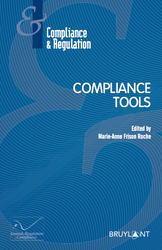
Full Reference : Frison-Roche, M.-A..,Rights, primary and natural Compliance Tools, in Frison-Roche, M.-A. (ed.), Compliance Tools, series "Régulations & Compliance", Journal of Regulation & Compliance (JoRC) and Bruylant, 2021, p. 319-342
___
Article Summary: In the traditional conception of the architecture of the sectors regulated by Law, and in Compliance Law which extends the regulatory techniques, rights have little place. But this configuration no longer takes place; on the contrary, rights are at the center of Regulatory and Compliance systems, and will be more and more so. They are and will be the primary tools of Compliance Law because they constitute a very effective "tool" to ensure the entire functioning of a system whose goals are so difficult to achieve. Because every effort must be done to achieve these goals, the public authorities not only rely on the power of crucial operators, but also distribute prerogatives to people and organizations who, thus encouraged, activate the Compliance system and participate in the achievement of the "monumental goal". Rights can prove to be the most effective tools for actually achieving the goals set, so much so that they can be seen as "primary tools".
But it is pertinent to have more pretension and to conceive rights as the most "natural" tools of Compliance Law. Indeed because all the Monumental Goals by which Compliance Law is defined can be expressed by the protection of persons, that is to say to the effectiveness of their prerogatives, by a mirror effect between rights. given as tools by Law by to persons and rights which constitute the very goal of all Compliance Law, in particular the protection of all human beings, even if they are in a situation of great weakness, rights becoming a "natural tool" of Compliance Law.
We are only at the beginning of their deployment and it is undoubtedly on them that Digital space in which we now live would be regulated, so that we will not suffocated there and that it will constitute for people a civilized space.
____
Read the General Presentation of the book in which this article has been published
____
June 2, 2021
Editorial responsibilities : Direction of the collection Compliance & Regulation, JoRC and Bruylant

► Full Reference: Frison-Roche, M.-A. (ed.), Compliance Tools, series "Régulations & Compliance", Journal of Regulation & Compliance (JoRC) & Bruylant, 2021.
This book in English is the first title of this collection integrally dedicated to Compliance Law, in that it is the extension of Regulation Law.
____
📚 Read the titles of this series in English co-published by Bruylant.
📚 This collection in English is articulated with a collection co-published between the Journal of Regulation & Compliance and Dalloz.
📕Thus, in parallel, a book in French, Les Outils de la Compliance is published.
___
📅 This book is published after a cycle of colloquiums organised by the Journal of Regulation & Compliance (JoRC) and Partners Universities.
___
► General Presentation of the collective book: The political dimension of Compliance Law lies in the goals it aims to achieve. To achieve them, the concern for these goals is internalized in "crucial operators", which may be obliged to concretize "monumental goals" set by public authorities. These public bodies control the Ex Ante reorganization that this implies for these companies and sanction Ex Post the possible inadequacy of the companies, which have become transparent to this end. The effectiveness and efficiency of this internalization, without which the statement of these goals is worth nothing, is based on the Compliance tools that are deployed.
These appear to be very diverse but their substantial unity (topic which will be the subject of a forthcoming book) makes it possible to study the tools put in place from a unique perspective, by not isolating them in a particular branch of Law, Criminal law or International Law for example, but by measuring what is common to them, notably Anticipation, Trust, Commitment, Responsibility, Incentive, and so on. If the Compliance tools vary, it is rather not only according to the sectors, finance and banking appearing then as the advanced point of the general Compliance Law, for example in environmental matters, but also according to the countries and the cultures. It is in fact about them that legal cultures seem to oppose.
The book aims to understand these "tools" by going beyond the description of each instrument, for which we already have many monographs, for analyzing them through the issues of Risks, required Expertises, Training. Sovereignty claims, Incentives, mechanical aptitude of Technologies. It is through these themes that are analyzed by the authors, experts in the field, what we always want to understand better: Compliance Programs, Whistle blowing, Mapping, Sanctions, Extraterritoriality, etc.
____
Read the summary of the book.
Read the foreword, summarizing all the contributions.
Présentation of the book contributions:
📝Amico, Th., Compliance or the passage from ex post to ex ante: A Copernican revolution for the criminal lawyer?
📝Banck, A., The maturity of the Compliance tool’s user, first criterion of the choice of the salient tool
📝Burlingame, Coppens R., Power, N, Lee, D.H., Anti-Corruption Compliance: Global Dimension of Enforcement and Risk Management
📝Calandri, L., Incentive(s) and Self-Regulation(s): which place for Compliance Law in the Audiovisual Sector?
📝Causse, H., Compliance Training: Through and Beyond Traditional Legal Training
📝Frison-Roche, M.-A., Describing, designing and correlating Compliance Tools to have a better use of it
📝Frison-Roche, M.-A., Building by Law the Unicity of Compliance Tools from the Definition of Compliance Law by its "Monumental Goals"
📝Frison-Roche, M.-A., Drawing up Risk Maps as an obligation and the paradox of the "Compliance risks"
📝 Frison-Roche, M.-A., Incentives and Compliance, a couple to propel
📝 Frison-Roche, M.-A., Resolving the contradiction between sanctions and incentives under the fire of Compliance Law
📝 Frison-Roche, M.-A., Rights, primary and natural Compliance tools
📝 Frison-Roche, M.-A., Training: content and container of Compliance Law
📝 Galland, M., The Regulator's Inspection of the Effectiveness of the Compliance Tools Implemented by the Company
📝 Granier, C., The Normative Originality of Compliance by Design
📝 Guillaume, N., Compliance risk mapping: first insights of challenges, limits and good practices
📝Guttierez-Crespin, A., Audit of Compliance Systems
📝 Koenigsberg, S. and Barrière, F., The Development of Attorney's Compliance Expertise
📝 Larouer, M., The Manifestation of Incentives Mechanisms in French Compliance Law
📝 Merabet, S., Morality by Design
📝 Pailler, L., Technological Tools, Compliance by Design and GDPR: the Protection of Personal Data from Design
📝 Racine, J.-B., Geographical dominance in the choice and the use of Compliance Tools. Introductory remarks
📝Rapp, L., Incentive Theory and Governance of Space Activities
📝 Roda, J.-C., Compliance by design in antitrust: between innovation and illusion
📝 Salah, M., Conception and Application of Compliance in Africa
📝 Tardieu, H., Data Sovereignty and Compliance
📝 Thouret, T., Training and Compliance, Two Correlated Information Transmission Tools
June 2, 2021
Publications

Full reference: Frison-Roche, M.-A., Describing, conceiving and correlating compliance tools, in order to use them adequately, in Frison-Roche, M.-A. (ed.), Compliance Tools, series Regulation & Compliance, Journal of Regulation & Compliance (JoRC) and Bruylant, 2021, p. 9-32.
____
Summary of the article: The article is the general introduction to the book on Compliance tools. In its first part it develops the overall problematic. In its second part, it presents each of the contributions, placed in the overall construction of the work.
____
Read a general presentation of the book in which this article has been published.
June 2, 2021
Publications

Full Reference: Frison-Roche, M.-A., Training: content and container of Compliance Law, in Frison-Roche, M.-A. (ed.), Compliance tools, series "Régulations & Compliance", Journal of Regulation & Compliance (JoRC) and Bruylant, 2021, p. 245-264
___
Summary of the article
Firstly, as Training is a specific Compliance tool, it is supervised by Regulators. It becomes mandatory when it is contained in Compliance programs or sanction decisions. Since effectiveness and efficiency are legal requirements, what is the margin of companies to design them and how to measure the result?
Secondly, as long as each Compliance tool includes, more and more, an educational dimension, we can take each of them to identify this perspective. So even condemnations and prescriptions are so many lessons, lessons given, lessons to be followed. The question is then to know who, in this so pedagogical Compliance Law, are the "teachers"?
____
This article is based on a bilingual Working Paper, including additional technical developments, pop-up notes and hypertext links.
Consult an overview of the volume in which the article was published.
____
June 1, 2021
Compliance: at the moment

May 5, 2021
Thesaurus : Doctrine
Full Reference : Akman, P., A web of Paradox: Empirical Evidences on Online Platform Users and Implications for Competition and Regulation in Digital Markets, Paper, June 2021.
Abstract (done by the author) :This article presents and analyses the results of a large-scale empirical study in which over 11,000 consumers from ten countries in five continents were surveyed about their use, perceptions and understanding of online platform services. To the author’s knowledge, this is the first cross-continental empirical study on consumers of online platform services of its kind. Among others, the study probed platform users about their multi-homing and switching behaviour; engagement with defaults; perceptions of quality, choice, and well-being; attitudes towards targeted advertising; understanding of basic platform operations and business models; and, valuations of ‘free’ platform services. The empirical evidence from the consumer demand side of some of the most popular multi-sided platforms reveals a web of paradoxes that needs to be navigated by policymakers and legislatures to reach evidence-led solutions for better functioning and more competitive digital markets. This article contributes to literature and policy by, first, providing a multitude of novel empirical findings and, second, analyzing those findings and their policy implications, particularly regarding competition and regulation in digital markets. These contributions can inform policies, regulation, and enforcement choices in digital markets that involve services used daily by billions of consumers and are subjected to intense scrutiny, globally.
May 5, 2021
Thesaurus : 08. Juridictions du fond
Référence complète : Paris, 5 mai 2021, Carrefour
____
La société Carrefour Hypermarchés commande et achète des produits référencés par sa centrale de référencement, Carrefour Marchandises Internationales (CMI), notamment ceux de la la société I2C. Or, le responsable du référencement des produits de cette société s'était vu offrir des voyages par ce fournisseur (certes avant l'établissement de la Charte éthique).
Un audit avait révélé cela après l'adoption de la charte. Par conséquent, la société CMI a mis fin à sa relation commerciale avec ce fournisseur.
Contestée sur l'allégation du caractère brutal de la rupture des relations commerciale, la Cour estime que cela est justifié car la violation de la charte éthique pouvait fonder la rupture immédiate des relations commerciales, indépendamment de leur date en raison de leur gravité.
- Voir dans le même rattachement à l'obligation de vigilance sur les manquements du fournisseur, justifiant la cessation immédiate de toutes relations commerciales :
- Paris, 13 mars 2019, Monoprix , n°17/21477 ;
- Paris, 24 mars 201, Promod, n°19/15565
________
April 21, 2021
Publications
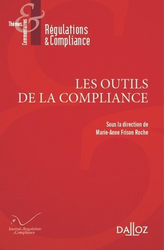
General reference : Frison-Roche, M.-A. (ed.), Les outils de la Compliance, series "Régulations & Compliance", Journal of Regulation & Compliance (JoRC) & Dalloz, 2021.
In parallel, the book is published in an English version Compliance Tools, co-edited by the Journal of Regulation & Compliance (JoRC) and Bruylant.
This book follows a cycle of conferences organized by the Journal of Regulation & Compliance and by its partner universities.
____
See the collection Regulation & Compliance in which the book has been published.
____
General presentation of the book : The political dimension of Compliance Law resides in the monumental goals that it aims for and which define it. These goals are internalized in "crucial operators", who willingly or by force must structure themselves and act to achieve "monumental goals", as set by public authorities and which may coincide with the interests of the enterprise. This one designs and controls the Ex Ante reorganization that this implies, under the public authorities supervision. Enterprises, even if their activities are not regulated, thus become transparent and must show the Compliance Tools effectively deployed to effectively achieve these goals. It is a major transformation of economic life in all countries because the Compliance Tools are adopted everywhere and have a global effect.
These appear to be very diverse but their unity is profound and bringing it out has the practical benefit of producing a legal regime that is as unified as possible, while allowing their adaptation country by country, sector by sector, enterprise by enterprise.
This book aims to understand these Compliance Tools to better anticipate the assessment that will be made by Regulators, Supervisors and Courts, as well as the new conceptions of the authors of legal texts which impose new ones every day, while companies must also imagine the most appropriate Compliance Tools.
This collective work specifically apprehends those on which we have few studies when we handle them on a daily basis, such as risk mapping or training or rights, letting more familiar tools shine through more transversal contributions, such as compliance programs, sanctions, whistleblowing or many sorts of settlements, agreements of public interest.
A first chapter takes a legal and economic approach. A second chapter emphasizes the role of risk mapping. A third chapter draws the game of incentives. A fourth chapter identifies the expertise required. A fifth chapter insists on geographic significance. A sixth chapter details the measurement of effectiveness. A seventh chapter explores training. The eighth chapter examines technological tools. The concluding article leads to rights.
____
Read the presentations of the articles of the book :
- Amico, Th., La Compliance ou le passage de l'ex post à l'ex ante: une révision copernicienne pour l'avocat pénaliste ?
- Banck, A., La maturité de l’usager de l’outil de la Compliance, premier critère du choix de l’outil adéquat
- Benzoni, L., and Deffains, B., Approche économique des outils de la Compliance: finalités, effectivité et mesure de la Compliance "subie" et "choisie"
- Burlingame, R., Coppens, KK, Power, N. & Lee, D.H., Compliance : lutte internationale contre la corruption et gestion du risque
- Calandri, L., Incitation(s) et autorégulation(s): quelle place pour le Droit de la Compliance dans le secteur audiovisuel?
- Frison-Roche, M.-A., Décrire, concevoir et corréler les outils de la Compliance, pour en faire un usage adéquat
- Frison-Roche, M.-A., Compliance et incitations, un couple à propulser
- Frison-Roche, M.-A., Résoudre la contradiction entre incitations et sanctions sous le feu du Droit de la Compliance
- Frison-Roche, M.-A., Dresser des cartographie des risques comme obligation et le paradoxe des "risques de conformité"
- Frison-Roche, M.-A., Compliance : contenu et contenant du Droit de la Compliance
- Frison-Roche, M.-A., Les droits subjectifs, outils premiers et naturels du Droit de la Compliance
- Granier, C., L'originalité normative de la Compliance by design
- Guillaume, N., Cartographie des risques de compliance : premiers aperçus des enjeux,des limites et des bonnes pratiques
- Gutierriez-Crespin, A., L’audit du dispositif de compliance : un outil clé pour en vérifier la robustesse
- Koenigsberg, S. et Barrière, Fr, La construction de l'expertise de l'avocat en matière de compliance
- Merabet, S., La morale by design
- Tardieu, H., Souveraineté des données et Compliance
_____________
April 21, 2021
Publications

► Full Reference: M.-A. Frison-Roche, "Les droits subjectifs, outils premiers et naturels du Droit de la Compliance" ("Rights, primary and natural Compliance Tools"), in M.-A. Frison-Roche (ed.), Les outils de la Compliance, coll. "Régulations & Compliance", Journal of Regulation & Compliance (JoRC) and Dalloz, 2021, p. 301-323.
____
📝read the article (in French)
____
🚧read the bilingual Working Paper which is the basis of this article, with additional developments, technical references and hyperlinks
____
📕read a general presentation of the book, Les outils de la Compliance, in which this article is published
____
► Summary of this article (done by the Journal of Regulation and Compliance): In the traditional conception of the architecture of the sectors regulated by Law, and in Compliance Law which extends the regulatory techniques, rights have little place. But this configuration no longer takes place; on the contrary, rights are at the center of Regulatory and Compliance systems, and will be more and more so. They are and will be the primary tools of Compliance Law because they constitute a very effective "tool" to ensure the entire functioning of a system whose goals are so difficult to achieve. Because every effort must be done to achieve these goals, the public authorities not only rely on the power of crucial operators, but also distribute prerogatives to people and organizations who, thus encouraged, activate the Compliance system and participate in the achievement of the "monumental goal". Rights can prove to be the most effective tools for actually achieving the goals set, so much so that they can be seen as "primary tools".
But it is pertinent to have more pretension and to conceive rights as the most "natural" tools of Compliance Law. Indeed because all the Monumental Goals by which Compliance Law is defined can be expressed by the protection of persons, that is to say to the effectiveness of their prerogatives, by a mirror effect between rights. given as tools by Law by to persons and rights which constitute the very goal of all Compliance Law, in particular the protection of all human beings, even if they are in a situation of great weakness, rights becoming a "natural tool" of Compliance Law.
We are only at the beginning of their deployment and it is undoubtedly on them that Digital space in which we now live would be regulated, so that we will not suffocated there and that it will constitute for people a civilized space.
________
April 21, 2021
Thesaurus : Doctrine

► Full Reference : J.-B. Racine, "Propos introductifs. La prégnance géographique dans le choix et l'usage des outils de la Compliance" ("Introductory remarks. Geographical dominance in the choice of Compliance Tools"), in M.-A. Frison-Roche (ed.), Les outils de la Compliance, coll. "Régulations & Compliance", Journal of Regulation & Compliance (JoRC) and Dalloz, 2021, p. 157-164.
____
📕read a general presentation of the book, Les outils de la Compliance, in which this article is published
____
► Summary of the article (done by the Journal of Regulation & Compliance): The author correlates Compliance Law and "Global Law" and underlines the balance of power that the former expresses, in particular on the part of the United States and even if it therefore "tends to become universal" , the particularities remain, if only in the implementation.
Focusing more particularly on "Compliance Tools", a comparison is made between several contributions of the volume, to establish that, in a definitive and desirable way, the Compliance mechanisms include both a global dimension and a local dimension.
________
April 21, 2021
Thesaurus : Doctrine

► Full Reference : Th. Amico, "La Compliance ou le passage de l'ex post à l'ex ante. Une révolution copernicienne pour l'avocat pénaliste ?" ("Compliance or the passage from ex post to ex ante: a Compernican revolution for the criminal lawyer?"), in M.-A. Frison-Roche (ed.), Les outils de la Compliance, coll. "Régulations & Compliance", Journal of Regulation & Compliance (JoRC) and Dalloz, 2021, p. 145-154.
____
📕read a general presentation of the book, Les outils de la Compliance, in which this article is published
____
► Summary of the article (done by the Journal of Regulation & Compliance): After referring to various definitions of Compliance Law, the author insists on the usefulness of the criminal lawyer in that he, familiar with the Ex-Post that constitutes the sanction, can be of good advice. in the Ex-Ante in which new compliance mechanisms are being developed, such as risk mapping or third-party assessment.
Addressing the punitive dimension of Compliance Law, the author shows that the criminal lawyer therefore naturally has a place there, whether it concerns the powers exercised by an administrative authority or the criminal law itself. In that he can "anticipate criminal proceedings", the criminal lawyer is therefore best able to ensure that the company does not expose itself to them, in particular in a good mastery of internal investigations, thus ruling out the criminal risk.
________
April 21, 2021
Thesaurus : Doctrine

► Full Reference: S. Merabet, "La morale by design" ("Morality by design"), in M.-A. Frison-Roche (ed.), Les outils de la Compliance, coll. "Régulations & Compliance", Journal of Regulation & Compliance (JoRC) and Dalloz, 2021, p. 287-298.
____
📕read a general presentation of the book, Les outils de la Compliance, in which this article is published
____
► Summary of the article (done by the Journal of Regulation & Compliance): After having wondered about the relationship between Law and Morality, for which it is difficult to find points of contact, the author advances the hypothesis that the latter could find a space of concretization in the technology of artificial intelligence, even though many are worried about the deleterious effects of it. The author considering that Compliance is only a method while ethics would be the way in which morality is incorporated in a relaxed way in Law, the technology known as Artificial Intelligence could therefore express the moral rule ("compliance by design could be the appropriate tool to ensure the effectiveness of moral rules without falling into the excesses envisaged").
The author draws on examples to estimate that thus technology for on the one hand expressing the moral rule and on the other hand making it effective. The moral rule can thus be drawn up in a balanced way since it is jointly developed between the State and the economic operators, this collaboration taking the form of general principles adopted by the State using the means chosen by the company. Its content would also be characterized by the search for a "right balance", which would be found by this distribution between the primary moral principles whose expression would be the act of the State and the secondary moral principles whose expression would be delegated to companies.
Taking therefore what would be the principles of Compliance, the author applies them to Artificial Intelligence, showing that these technologies include not only the principle of neutrality but also the ethical principles of non-maliciousness, even of benevolence. (first principles) that companies then decline into secondary principles. Therefore, "compliance can usefully be used to convert these fundamental moral principles into derived moral rules, a source of greater effectiveness.".
Thus resulting in a "moral by design", the overall system has an additional effectiveness tool. This supposes that the fundamental and derived rules are of an acquired moral quality because for the moment the technological tool can only ensure their effectiveness and not the moral quality of the implemented rules. In determining the "moral rules of application", the company has margins of freedom, used through technological tools.
________
April 21, 2021
Publications

► Full Reference: M.-A. Frison-Roche, "Décrire, concevoir et corréler les outils de la Compliance, pour en faire un usage adéquat" ("Describing, conceiving and correlating Compliance Tools, in order to use them adequately"), in M.-A. Frison-Roche (ed.), Les outils de la Compliance, coll. Régulations & Compliance, Journal of Regulation & Compliance (JoRC) and Dalloz, 2021, p. 3-24.
____
📝read the article (in French)
____
📕read a general presentation of the book, Les outils de la Compliance, in which this article is published
____
► Summary of the article (done by the Journal of Regulation & Compliance): The article is the general introduction to the book on Compliance tools. In its first part it develops the overall problematic. In its second part, it presents each of the contributions, placed in the overall construction of the work.
________
April 21, 2021
Publications

► Full Reference: M.-A. Frison-Roche, "Dresser des cartographies des risques comme obligation et le paradoxe des "risques de conformité"" ("Drawing up risk maps as an obligation and the paradoxe of the "compliance risks""), in M.-A. Frison-Roche (ed.), Les outils de la Compliance, coll. "Régulations & Compliance", Journal of Regulation & Compliance (JoRC) and Dalloz, 2021, p. 53-62.
____
📝read the article (in French)
____
🚧read the bilingual Working Paper which is the basis of this article, with additional developments, technical references and hyperlinks
____
📕read a general presentation of the book, Les outils de la Compliance, in which this article is published
____
► Summary of the article (done by the Journal of Regulation & Compliance): There are few synthetic or theoretical studies on Risk Mapping even though it is in fact the Compliance central tool, perhaps because it is more a management tool than a legal one. Risk Mapping is often described but does not receive any other legal qualifications than being a "modality", suffering in this respect from an evil which affects the whole of Compliance, still little understood by Law, attention often so focused on the Ex Post (sanctions) while Compliance is by nature in the Ex Ante. Going from disarray to incomprehension, everyone can note the existence of "compliance risks" among the mapped risks, because if as so many affirm that it would be necessary to speak only of simple conformity as obedience, demonstrated in Ex Ante, to Law, how a sub-set of a tool would therefore have the same object as the set of Law that this tool serves ... This aporia can only be resolved if Compliance Law is defined substantially by its "monumental goals" which exceed obedience to regulations.
Consequently, Law taking up Risk Mapping, this mechanism may first appear as an ancillary obligation to the main obligation consisting in achieving "monumental goals". The ancillary obligation to draw up the maps is an obligation of result, while the main obligation to achieve the monumental goals is an obligation of means. These cartographies being very diverse and being only occasionally targeted by specific laws, it can also constitute only a legal fact or, through the play of various charters, a unilateral legal commitment. But it isnbecoming the basis of an autonomous legal obligation incumbent on enterprises in position to know certain risks, obligation referring to the existence of a subjective right tof knowing and measuring them ("right to be worried") which the third parties who are going to run them would hold, thus allowing them to choose to run them, or not.
________
April 21, 2021
Publications

► Full Reference: M.-A. Frison-Roche, "La formation : contenu et contenant de la Compliance" ("Training: content and container of Compliance"), in M.-A. Frison-Roche (ed.), Les outils de la Compliance, coll. "Régulations & Compliance", Journal of Regulation & Compliance (JoRC) and Dalloz, 2021, pp.. 227-244.
____
📝read the article (in French)
____
🚧read the bilingual Working Paper which is the basis of this article, with additional developments, technical references and hyperlinks
____
📕read a general presentation of the book, Les outils de la Compliance, in which this article is published
____
► Summary of the article (done by the Journal of Regulation and Compliance): Firstly, as Training is a specific Compliance tool, it is supervised by Regulators. It becomes mandatory when it is contained in Compliance programs or sanction decisions. Since effectiveness and efficiency are legal requirements, what is the margin of companies to design them and how to measure the result?
Secondly, as long as each Compliance tool includes, more and more, an educational dimension, we can take each of them to identify this perspective. So even condemnations and prescriptions are so many lessons, lessons given, lessons to be followed. The question is then to know who, in this so pedagogical Compliance Law, are the "teachers"?
________
March 31, 2021
Compliance: at the moment

March 31, 2021
Conferences

 Full reference: Frison-Roche, M.-A., Compliance et arbitrage. Rapport de synthèse: un adossement (Compliance and Arbitration: a Backing. Conclusion), in Frison-Roche, M.-A. & Racine, J.-B., Compliance et Arbitrage (Compliance and Arbitration), Colloquium co-organised by the Journal of Regulation & Compliance (JoRC) and the Centre de recherches sur la Justice et le Règlement des Conflits (CRJ) of Panthéon-Assas University (Paris II), with the support avec the International Court of Arbitration, Paris, 31st of March 2021
Full reference: Frison-Roche, M.-A., Compliance et arbitrage. Rapport de synthèse: un adossement (Compliance and Arbitration: a Backing. Conclusion), in Frison-Roche, M.-A. & Racine, J.-B., Compliance et Arbitrage (Compliance and Arbitration), Colloquium co-organised by the Journal of Regulation & Compliance (JoRC) and the Centre de recherches sur la Justice et le Règlement des Conflits (CRJ) of Panthéon-Assas University (Paris II), with the support avec the International Court of Arbitration, Paris, 31st of March 2021
_____
Read the program of this colloquium
See Marie-Anne Frison-Roche's conclusion in video (in French, with English subtitles)
These notes of the conclusion have been written as the colloquium took place.
See the video of the entire colloquium (in French, with English subtitles)
___
This colloquium is part of the Cycle of colloquium 2021 organized by the Journal of Regulation & Compliance (JoRC) and its partners around the topic Compliance Juridictionnalization.
This manifestation is in French but the interventions will be the basis for a specific chapter of the English collective book directed by Marie-Anne Frison-Roche, Compliance Juridictionnalization, co-published by the JoRC and Bruylant.
An equivalent book in French, La Juridictionnalisation de la Compliance, directed by Marie-Anne Frison-Roche, will be co-published by the JoRC and Dalloz.
Read the notes established for the conclusion below ⤵️
March 30, 2021
Thesaurus : Doctrine
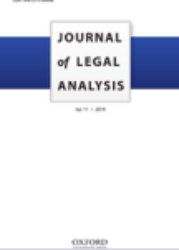
Full reference: Luguri, J. and Strahilevitz, L. J., Shining a Light on Dark Patterns, Journal of Legal Analysis, Vol. 13, Issue 1, 2021, 67p.
Sciences Po's students can read this article via Sciences Po's Drive in the folder MAFR - Regulation & Compliance.
March 24, 2021
Compliance: at the moment

March 23, 2021
Thesaurus : Soft Law
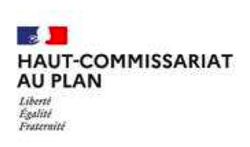
Full reference: Bayrou, F., Electricité: le devoir de lucidité (Electricity: the duty of lucidity), note n°4 from the Haut-Commissariat au Plan (French government planification agency), 23rd of March 2021, 37 p.
Read the note (in French)
Read the summary of the note done by the Haut-Commissariat au Plan on is official website (in French)
March 18, 2021
Thesaurus : Doctrine
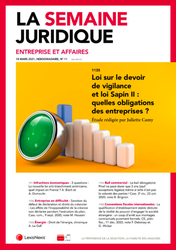
March 17, 2021
Conferences
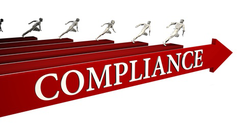
 Full reference : Frison-Roche, M.-A., The Potential of Compliance Law (Les potentialités du Droit de la Compliance), conference given to Muriel Fabre-Magnan's students, Paris I, 17th of March 2021.
Full reference : Frison-Roche, M.-A., The Potential of Compliance Law (Les potentialités du Droit de la Compliance), conference given to Muriel Fabre-Magnan's students, Paris I, 17th of March 2021.
_____
This conference has been designed for Paris I's students following a Law cursus, specialized in Law of obligations and especially in Tort Law.
It therefore aims to show the technical content of Compliance Law and what it can become.
It has been followed by a debate with students.
Summary: Compliance Law is a branch of Law in the process of being born. We can be sure of its existence in the French positive Law, through the technical examination of laws called "Sapin 2" (2016) and "Vigilance" (2017). It appears at radically new. It is the reason why it is perceived as an attack, especially from United-States and we rather use legal knowledge to counter it. But if we study the historical reasons of its adoption in the United-States and the "monumental goals", whether they are negative (what should not appear in the future) or positive (what should appear in the future), we can measure that this Law, which is essentially Ex Ante could be the means through which scattered but legitimate public authorities and powerful but illegitimate big firms could ally. Therefore potentially Compliance Law could be the worst, simple tool of obedience (mechanical "conformité") or the best: what through which we could do something face to global problems, like global warming, or what we would accept to look in the face: the care for others.
Read the slides on which this conference was based (in French)